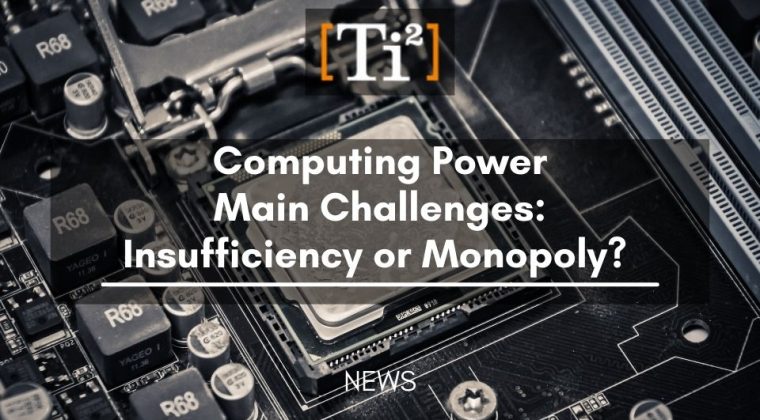
Is computing power affecting manufacturing plants? The answer is a strong yes. Computing power is a whole realm that connects both the physical and virtual world. A dimension that connects human and AI collaboration. In 2020, computing power infrastructure breaks the door to digital civilisation. A wave of technology driven by AI, 5G, cognitive computing, and big data analysis.
By day, computing power is considered the key to productivity in a manufacturing or industrial plant. A capacity for processing streaming data that requires speed and seamless transfer. There are several different types of computing in the computing environment such as:
- Traditional Computing Environment
- Cloud Computing
- Grid Computing
- Distributed Computing
- Cluster Computing
- Personal Computing
- Time-Sharing Computing
- Client-Server Computing
- Peer-to-Peer Computing
- Mobile Computing
Each of which holds different roles and advantages for different industry usage with ultimately, the same form of support in processing and transferring data.
Artificial Intelligence
AI’s have been around since the 1950’s. Imagine the amount of data, samples, voices, pitches, sensory recognition data, and facial features that are saved, transferred, created, and developed to reach today’s level of precision. An AI model requires a tremendous amount of data all merged into one system – receptors and effectors.
This is only possible with a high computing power that has the capability of processing millions of data points per millisecond. Faster data transfer, seamless process, and shorter response time, all the perfect time frame and span for AI doubles and triples every couple months to reach human-level intelligence.
Testing, optimising, modifying and investing in plants are the same thing. With high computing power, all data can be valuable assets to increase plant’s productivity. With so many activities and data-processing points on the go, computers with high computing powers tend to consume insane amount of energy.
Innovative technologies are moving forward to lesser energy consumptions.
The challenge remains in maintaining a well-performing, efficient, and productive manufacturing plant.
Insufficiency or Monopoly
Moore’s law states that the capacity of microchips, bandwidth and computers doubles every 18 months. This applies for general technological developments such as 3D printing, sensor tech, AI, robotics, drones and nanotechnology to mention a few.
Although there has been a massive boost in computing power, plenty of manufacturing technologies and plants require modern adaptation and integration.
Insufficient computing power in plants aren’t as simple as blue screens and missing graphics, it affects precision, time frame, productivity span, and inventory management. Which eventually affects revenue and fulfillment.
Solution for insufficient computing power:
- With a vertical networking solution, integrate a plant’s existing IT infrastructure with a combined solution through a range of components – modules, control system, communication networks, CRMs, sensors, and applications.
- Generate data by gathering, analysing, and processing data into a data management system. Collect analytics to support decision-making. Analyse which part of the system is experiencing challenges or delays.
- Cloud-based applications – cloud computing is an excellent solution to generate and store big data, enabling universal, real-time, anytime access to data with direct cloud transfer system. Great option for global value-chain network.
On the other side, a centralised portal creates monopoly that may encounter single-point-of-failure. This increases the chances of disfiguration or manipulation and poor data security.
Solution for centralised computing power:
- A radical new approach is required – optimising business model would be a better solution compared to making incremental improvements. A decentralised system requires a decentralised workforce.
- Data security – a custom risk management system should be developed with a security strategy. Protect products, data, and intellectual properties from unauthorised access.
- IP management – New, individual IP management solution is a safe application for special security, focusing on all machineries, AI, robotics, and software application.
The optimisation and innovation of computing power and platform systems play an important role in the industrial market. With constant hardware and software upgrades implemented to perfect new functionalities, computing power undergoes a higher demand.
Smart plants are often characterised by high level of connectivity between different systems, where big data and measurement ensures better performance and decision-making values. Modern computing systems are undersigned in order to ensure operation efficiency.
A common computing system for industrial computer that is efficient in industrial application is Edge computing. Real time application synchronisation ensures better flexibility and faster data transmission on recurring changes in factory environment – often the key for security regulations, workflow control and optimisation.
Several main benefits include operation optimisation and improvement, latency reduction, higher bandwidth, improved flexibility and higher storage security.
To learn more about what we do and how we can help your smart machine design requirements, please click projects, products & services.
Ti2 is currently very focused on working with its global partners to secure stock and avoid long delay times in delivering products to their customers. Together with our trusted partners, we are here to provide solutions.
Please click here to email us your inquiry, we would like to hear from you.
Article inspired by Impulse, automation, designworld, sciencedirect, Forbes, Deloitte, and nexus.
